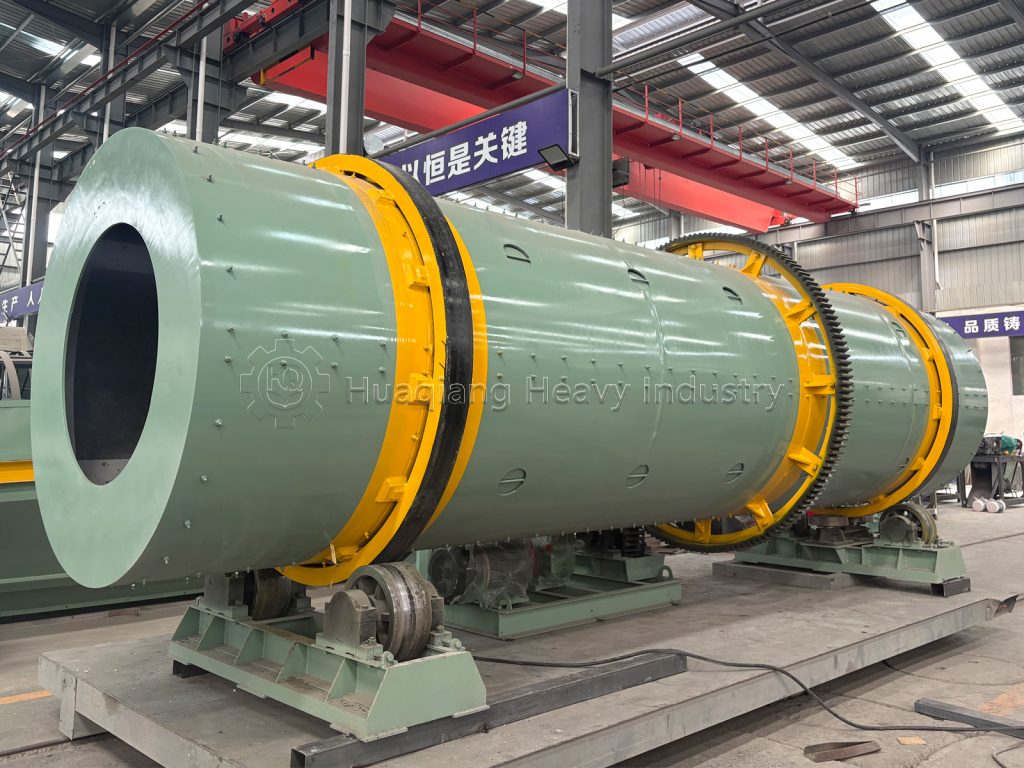In an organic fertilizer production line, a rotary drum granulator is the core equipment for converting powder into granules. Its operating principles revolve around material agglomeration and granulation. Through a combination of physical and mechanical processes, it transforms fermented organic raw materials into granular products that are easy to store, transport, and apply.

After the equipment is started, fermented and pulverized organic materials (such as decomposed cow dung and straw powder) are introduced into the inclined drum of the rotary drum granulator along with an appropriate amount of binder (usually water or starch solution). The drum rotates at a constant speed of 10-15 revolutions per minute. Lifting plates on the inner wall of the drum continuously scoop up and drop the material, creating continuous agitation and mixing. During this process, the binder moistens the surface of the raw material particles, forming a sticky interface and paving the way for particle agglomeration.
As the drum rotates continuously, the material gradually forms tiny “master particles” under the combined effects of gravity, centrifugal force, and friction. These masterbatch particles continuously roll within the drum, attracting surrounding powdered raw materials like a snowball, gradually increasing in size. Furthermore, the drum’s tilt angle (typically 3-5°) ensures that the material moves slowly toward the discharge end, preventing accumulation within the drum and ensuring that each particle is evenly stressed and grows.
To ensure pellet quality, the drum granulator also uses a temperature control system to regulate the drum temperature (typically between 40-60°C). This prevents excessive moisture content from causing pellet adhesion, while also preventing low moisture content from affecting agglomeration. When the pellets reach the preset size (typically 2-5mm, controlled by adjusting the drum speed and residence time), they are discharged from the discharge end and enter the subsequent drying and cooling processes.
Compared with other granulation equipment, the advantages of the rotary drum granulator are large processing capacity (a single device can produce 50-200 tons of fertilizer per day), high particle strength (compressive strength can reach 15-30N), and strong adaptability to raw materials. Whether it is poultry and livestock manure, straw or mushroom residue, it can be granulated stably. It is an indispensable key equipment in large and medium-sized organic fertilizer production lines.